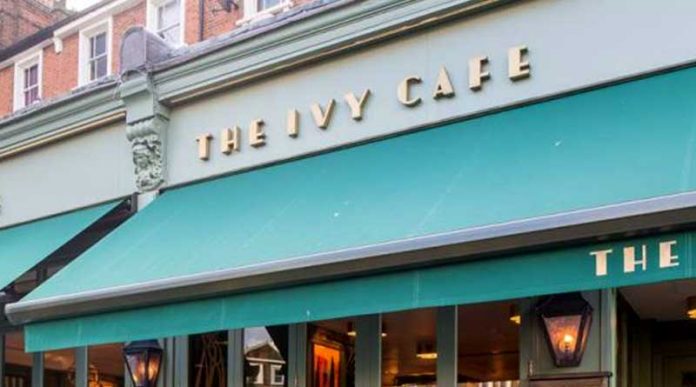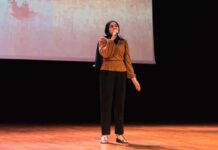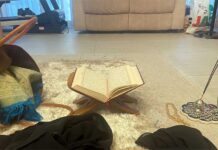By Alanoud AlBukhari
The sun shone brightly amid the grey specks of clouds, as brightly as it could during the dark days of late December. The breeze kissing my skin was chilled and bumpy. Despite the baroque weather and the shivers running through my skin, I was dining alfresco upon the sidewalk of Blackheath, London.
A teal awning hovered above my head, shiny and old but well-maintained. The glass windows of the café barely reflected the image of my face, been wiped enough times to have left a few subtle scratches on it. The shiny table beneath my arms was cold as my fingers tapped against it. The chattering that filled the dry air was loud and choppy. None of it, I minded.
“Do you know why they call Blackheath, Blackheath?” My friend, Rawad, sitting across from me, questioned out of the blue.
I shook my head in denial, having nursed no fondness towards etymologies in my spent lifetime.
My wandering sight settled upon the church flaunting its architectural beauty before me, peering from behind my friend. Its spire lengthened up to a great height. From where I was seated, I could’ve sworn it almost touched the clouds.
“There was a plague in the mid-1300s, they called it the black death. According to some myths, this place was used as a burial pit for those who died from it, so they named it blackheath. Hundreds may have been buried once underneath this ground,” she said, tapping her boot on the floor.
I could’ve commented on the unlikelihood of the assumption, but something else arrested my tongue. It was the noise behind me. A middle-aged man was arguing with a waiter about getting indoor seating, despite the packed state of the café.
“That’s barbaric,” I turned to my friend.
“The myth?”
“The plague.”
A quarter of an hour hadn’t squandered when the complaints of the previous man, now seated adjacent to us, resumed once more. This time, it was about the brunch plate not accurately matching his described preferences. An extra tomato, a scarce smidgen of cayenne, etc. I’d seen nitpicks like him before.
“Why are you serving me?!” He snapped at the waiter. “What could a burr head like you do except mess things up, huh?”
The racist slur took me back to the horrors of my childhood. My mother’s tears that she would shed sometimes when they treated us the same way, the neighbors in my Arab hometown, the discrimination, and groundless insults.
“I’m sorry, Sir,” the waiter said. “I’ll get it changed right away.”
“This is the third time! Now shoot away 8-ball and send me someone actually capable!”
Mere moments after that, I was standing before him.
“If you don’t like it here, you can move to some other place to tend to your very specific needs,” I
suggested.
“How is this your business, lady?” he shouted.
“It is because I don’t think racism is tolerated anywhere besides your sick brain anymore,” I hissed.
“Now if you don’t want me to call the manager, mind yourself out of here.”
He stayed stunned before heading out. “Don’t need to make a fuss about it,” he might have said. The waiter might have thanked me too. And though, the day was cold, so wasn’t my heart anymore.
“That was a brave thing you did there,” my friend told me.
“Right. Not brave,” I told her.
The afternoon was getting brighter and as church bells rang in a distance, we chatted about that city for hours longer than anticipated.
Alanoud Albukhari is a CAAD student


















